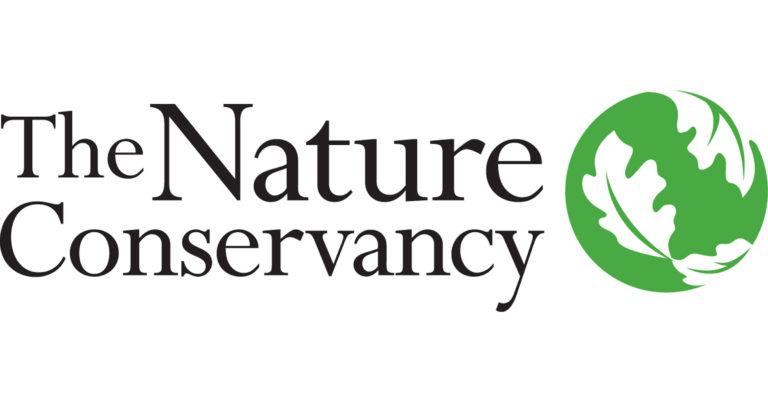Climate investment
IMPALA’s climate ambition
IMPALA’s primary focus is on helping our sector remove greenhouse gas emissions. Our aim is to reduce emissions 50% by 2030, and to achieve net zero emissions by 2050 (sooner if feasible). Emissions reduction is paramount and should be put before any measures to ‘offset’ (projects promising to reduce emissions somewhere else) or compensate remaining emissions (which should only apply for the remaining 10% of your footprint).
Course of action
1) Measure your carbon footprint annually with the IMPALA Carbon Calculator
2) Reduce the greenhouse gas emissions from your business operations and suppliers
3) Allocate funds for climate investment /environmental projects to take responsibility for unavoidable emissions, for example to Murmur
4) Repeat
Financing climate action
As an alternative to carbon offsetting, IMPALA is investigating how its members can support projects that have more immediate systemic impact. Murmur is a climate investment initiative founded by leaders in climate strategy and the creative industries, which enables the worlds of visual arts and music to play their part in combatting the climate crisis. Overseen by a panel of experts, Murmur’s strategic climate fund will direct finance towards the most impactful climate mitigation work they can find.
This thinking is also aligned with civil society actors such as WWF, CDP, New Climate Institute and Carbon Market Watch, which each encourage business to move beyond ‘offsetting’ emissions to ‘financing climate action’. This involves businesses adopting a ‘carbon price’ and multiplying this price by the quantity of emissions generated, to create a pot of money that can be used to finance projects based on transformative impact.
Carbon pricing
We recommend businesses set their own internal carbon price per tonne to determine the size of their investments. This should be high enough to incentivise internal emissions reductions and help companies take accountability for their impacts, though we also recognise that the appropriate price level may vary depending on business size and turnover.
IMPALA advises its members to set that price within the range of €60-115 per tonne of CO2e. A study published in September 2022 in Nature estimated the social cost of carbon (SCC) to be $185 per tonne of CO2.
In December 2022, EU-ETS priced carbon at around 90€ tCO2e. Find out more about the EU’s Emission Trading System and the current pricing here. In addition to the numbers from the European Emission Trading Scheme, German Umweltbundesamt estimated actual societal costs of carbon to be around 200€. Find out more on the Social Costs approach here (in German) and here.
For example, if your emissions were 120 tCO2e and you chose to pay €100 per tonne, your equation would be: 120 T CO2e x €100 = €12,000.
Why focus more on strategic/ impact/ transfer investments
These investments provide opportunities for businesses to directly fund a whole range of climate mitigation work; from community-based projects to policy advocacy, climate justice campaigns to legal interventions, or even ‘insetting’ schemes that help remove carbon in our own industry. Whilst these projects won’t make emissions disappear, they will help accelerate wider systemic change.
Examples of organisations to invest in
We have investigated these initiatives, but are not affiliated with them. Fill out the form below and let us know if you think any other initiatives should be included on the list.
Murmur
Murmur is a UK charity founded by leaders in climate strategy and the creative industries, enabling the worlds of visual arts and music to play their part in combatting the climate crisis.
Action for Conservation
Action for Conservation is a UK charity that aims to empower young people to take action to protect the environment.
Client Earth
ClientEarth is an environmental law charity using the power of law to bring about systemic change that protects the earth for – and with – its inhabitants. Among their achievements, it should be mentioned they blocked Europe’s largest planned coal plant and forced governments across Europe to clean up air pollution. Find out more here.
Extinction Rebellion
Extinction Rebellion is a decentralised, international and politically non-partisan movement using non-violent direct action and civil disobedience to persuade governments to act justly on the Climate and Ecological Emergency. Find more information here.
Greenpeace
Greenpeace uses non-violent creative action to pave the way towards a greener, more peaceful world, and to confront the systems that threaten our environment. They are a global network of independent national and regional Greenpeace organisations (NROs) and Greenpeace International as a coordinating organisation. Find more information here.
Good Food Institute Europe
Good Food Institute is an international NGO helping to build a more sustainable, healthy and just food system by transforming meat production. Find more information here.
Good Law Project
Good Law Project is a not for profit campaign organisation that uses the law for a better world. According to them, the law, in the right hands, can be a fair and decent force for good. It is a practical tool for positive change and can make amazing things happen. As part of their activities, they work on climate relevant projects.
Just Stop Oil
Just Stop Oil is a coalition of groups working together to ensure that the government commits to ending all new licenses and consents for the exploration, development and production of fossil fuels in the UK. Find more information here.
Music Declares Emergency
Music Declares Emergency is a group of artists, music industry professionals and organisations that stand together to declare a climate and ecological emergency and call for an immediate governmental response to protect all life on Earth. Find more information here.
The Natural Resources Defense Council
NRDC works to safeguard the earth—its people, its plants and animals, and the natural systems on which all life depends. They combine the power of more than 3 million members and online activists with the expertise of some 700 scientists, lawyers, and policy advocates across the globe to ensure the rights of all people to the air, the water, and the wild. More information here.
The Nature Conservancy
The Nature Conservancy is a global environmental nonprofit working to create a world where people and nature can thrive. Founded in the U.S. through grassroots action in 1951, The Nature Conservancy (TNC) has grown to become one of the most effective and wide-reaching environmental organizations in the world. Thanks to more than a million members and the dedicated efforts of their diverse staff and over 400 scientists, they impact conservation in 79 countries and territories: 37 by direct conservation impact and 42 through partners. Find more information here.
The Royal Society for the Protection of Birds
The Royal Society for the Protection of Birds was founded in 1889 to oppose the use of exotic feathers in the fashion industry. The RSPB’s aims were straightforward: to end the mindless destruction of birds, to promote the protection of birds, and to discourage people from wearing the feathers of birds. Today, RSPB protects and restores habitats for birds and other wildlife, conducts recovery projects, researches problems facing bird populations, and manages 200 nature reserves. More information here.
SolarAid
SolarAid is an international charity founded in 2006 to combat poverty and climate change. Through their social enterprise, SunnyMoney, they provide access to solar lights in Malawi and Zambia to help catalyse solar markets with renewable light. Read more here.
World Land Trust
World Land Trust is an international conservation charity focused on protecting the world’s most threatened habitats and wildlife. Through a combination of land acquisition, reforestation and reserve management, the WLT have successfully protected forests, grasslands, wetlands and mountains from the threat of development, logging and poaching. Read more here.
WWF
WWF works to sustain the natural world for the benefit of people and wildlife, collaborating with partners from local to global levels in nearly 100 countries. Find more information here.
Think local
Your support could have a bigger impact if invested in a local initiative, don’t forget to investigate the options in your own country.
Do you have any suggestions for other climate investment projects you would like us to feature on this page? Submit them below!
















